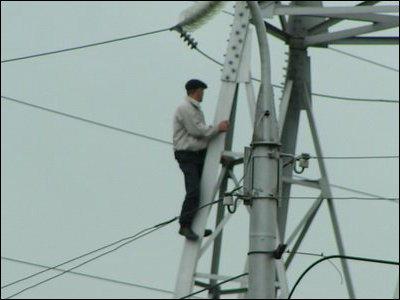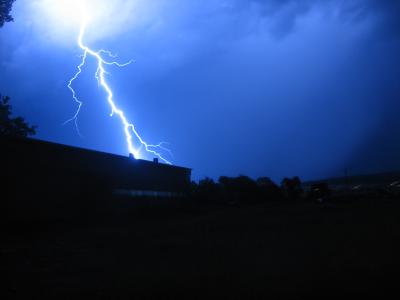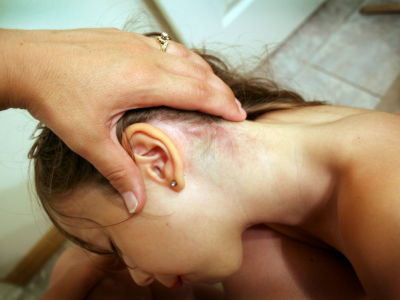The story of a man who survived being struck by lightning

In the United States alone, 500 people are struck by lightning every year, and while about 90% of them survive, some suffer from severe aftereffects. Outdoor magazine Outside has compiled testimonies from lightning survivors and experts.
How to Survive a Lightning Strike - Outside Online
The first witness to survive a lightning strike was Michael Utley, a stockbroker aged 48 at the time, on May 8, 2000. Utley was playing golf that day, but people around him were startled by the sound of thunder and turned around to see Utley lying on the ground, engulfed in smoke. Utley's shoes had been blown off and blown far away, his fingertips were burnt, and his hair was frizzy.
Utley responded to an interview with Outside.

by Ethan Hill / REDUX Pictures
Atlee's heart and lungs stopped, but a former Marine who was on the scene performed artificial respiration on him and called for emergency medical personnel, saving his life. Atlee has no memory of what happened, but all he remembers is waking up and being told by medical personnel, 'You were struck by lightning 38 days ago.'
Like Utley, most people struck by lightning don't remember what happened, and even after the physical wounds have healed, they often experience chronic pain, memory loss, personality changes and other psychological symptoms that can cause emotional upheaval and disrupt family relationships.
Although Utley was able to leave the hospital five weeks later, he still had to undergo months of rehabilitation to learn to swallow, move his fingers and walk.
At the time of writing, Utley, 62, was living off disability insurance and his career as a stockbroker was cut short after the lightning strike. 'I can't work anymore. My memory is burned, I don't have the energy I once had, and I've aged 30 years in an instant,' he told Outside. 'I still walk and play golf, but I can't walk 100 yards without stopping and I fall all the time.'
The lightning strike also significantly changed Attlee's personality: 'Lightning has made me a mean, violent person. I have a short temper and I enjoy nothing. I am not the man my wife married,' he said. Thus, the lightning strike became more than just a close call that Attlee was lucky to survive.
Complicating the issue of lightning is the fact that medical science knows very little about what happens to the body of a person who is struck by lightning. While many physicists are devoted to studying lightning as a discharge phenomenon, only a handful of doctors and researchers are dedicated to studying the damage that lightning causes to the human body.
Some survivors suffer temporary blindness and hearing loss (deafness occurs when electricity or lightning blasts rupture the eardrums), a metallic taste on the tongue, and
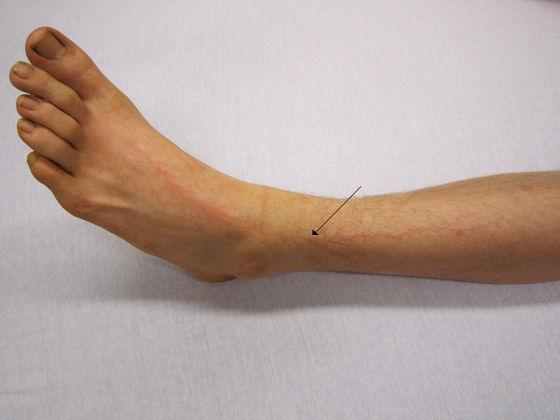
by
Another survivor of lightning strikes is Tamara Pandolph-Peary, who was struck by lightning in August 2010 at the age of 46. After surviving the strike, Pandolph-Peary was unable to remember how to use simple tools such as a potato peeler, and even forgot the scenery of her hometown. She also suffers from migraines and fatigue, and suddenly loses the ability to write or understand what people are saying. She also often feels dizzy and loses balance, and sometimes loses control of various parts of her body.
'At first I wondered why it had to happen to me,' said Pandolph Peary. 'There were times when I was angry, and times when I missed the person I was before, but I think I got over those times. If you let yourself get caught up in anger, it can ruin the rest of your life.'
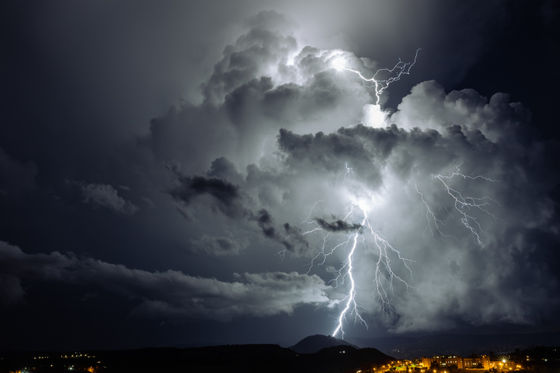
The average lightning strike has 500 megajoules of energy, enough heat to instantly evaporate 250 gallons of water. As it passes through the atmosphere, it heats the air up to five times the temperature of the sun's surface. Still, the average number of people killed by lightning strikes in the United States each year is 51, more than 500 are injured, and the survival rate is about 90%, a surprisingly low mortality rate given the energy of lightning. For example,
One of the reasons why the death rate from lightning is not so high is that the nature of lightning strikes is very different from accidents such as electric shock from everyday electrical appliances. If a careless electrician were to grab a live electrical wire, the current would immobilize him and electricity would flow through his body for a long time, causing his internal organs to burn. On the other hand, lightning strikes carry a much stronger energy than the electricity flowing through an electrical outlet, but they only last for 1/500,000 of a second, so even if the skin is burned, the internal organs are often not damaged.
Trees that are struck by lightning may explode or burst into flames, because the trunk of a tree has less water than the human body, meaning the electricity has nowhere to escape. However, when a person is struck by lightning, the discharge from the surface of the body can cause clothing to burn, metal objects such as belt buckles and keys can overheat and cause burns, and the sudden release of water vapor can blow off the victim's shoes or socks.
Mary Ann Cooper, a professor emeritus at the University of Illinois at Chicago, is one of the few doctors working directly on the effects of lightning on the brain. Her motivation for doing so began in the 1970s, when a friend of hers was electrocuted by a high-voltage shock wave.
One of the survivors who suffers from the aftereffects of lightning strikes, the subject of Cooper's research, is Phil Broskovac. In August 2005, while camping with his family and relatives, Broskovac was struck by lightning while rock climbing. He described his experience as 'a huge explosion of light, a sound like a grenade exploding in my head, a pain like a thousand bees stinging me from the inside, blue jelly-like plasma enveloping my body, and my legs twitching involuntarily like a marionette.'
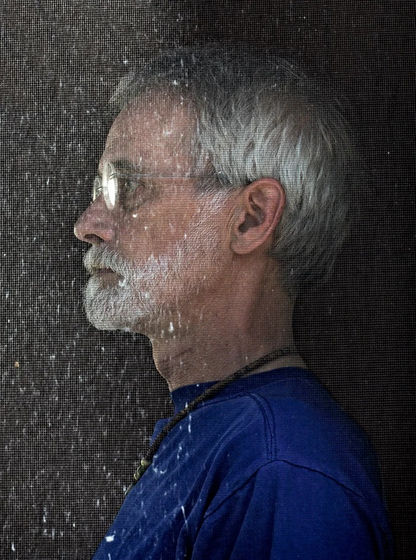
by Ethan Hill / REDUX Pictures
Fortunately, he regained consciousness while hanging from the rope, so he didn't think it was serious at the time and didn't listen to his wife's advice to go to the hospital. However, when he woke up the next morning, he was in so much pain that he couldn't stand up straight. However, his biggest problem was not the physical pain, but the forgetfulness.
Since being struck by lightning, Broskovac has been unable to remember even simple things, and when he tries to type a word on his PC screen, he ends up typing a different word, or is unable to understand what he has typed. He has also cried more than once because he couldn't remember the spelling of the word 'the'. He also suffers from tinnitus and insomnia, and has become sensitive to everyday sounds. Broskovac's frustration with this condition has led to him divorcing his wife.
Broskovac's condition has stabilized, allowing him to continue his career as an electrician and his hobby of rock climbing. But his recovery is a matter of time, as he was not taken seriously by doctors and was not given treatment.
Cooper, who has studied survivors of lightning strikes, said it is becoming clear that most of the aftereffects are caused by damage to the brain, nervous system and muscles. While lightning can completely destroy cells, it can also leave microscopic damage, and Cooper believes that this disruption of neural circuits is the cause of a variety of chronic problems.
Cooper's hypothesis is based on a study using functional magnetic resonance imaging (fMRI) to measure cerebral blood flow, which found significant differences in brain activity between lightning strike victims and healthy controls when they were scanned and given mental tests.
But Cooper can't set any time soon for further research because the medical and scientific communities don't place much importance on studying lightning damage, so he's focused on raising awareness and preventing lightning strikes.
Not only researchers, but also lightning survivors are using their experiences to take action. In June 2001, one year after recovering from his lightning strike, Utley attended the first meeting of the Lightning Strike & Electrical Shock Survivors, an organization organized by survivors of lightning strikes, and helped launch the National Oceanic and Atmospheric Administration's Lightning Safety Awareness Week. In 2002, he also began running Struckbylightning.org , a website aimed at educating people on how to prevent lightning strikes, and giving lectures at schools and Boy Scout classes.
'At first it was just so frustrating - you wake up unable to walk, unable to swallow, unable to do anything,' Utley said. 'I kept asking what was happening, why me, why not some other person standing just 15 feet away, and there's just no rhyme or reason. It's like shouting into the ocean and there are always no answers.'
Related Posts:
in Note, Posted by log1l_ks


